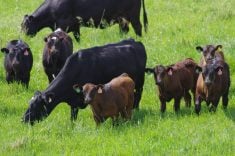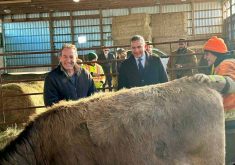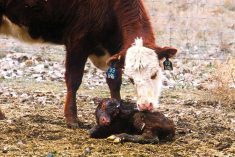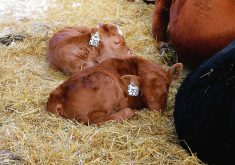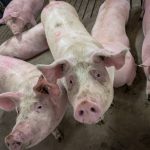Producer groups are pleased with recent news that the province is freezing Crown land lease rates for 2025.
Manitoba Beef Producers president Matthew Atkinson welcomed the news, but wasn’t surprised by it.
“It’s something that we’ve communicated back and forth with the province,” he said. “We wanted to see rents remain the same while we work on a longer term solution to the rental formula.”
Read Also

Horse live export ban on back burner
Animal welfare groups still hope Canada’s Parliament will ban the export of live horses for slaughter, a topic back in the news due to a recent court case in Manitoba.
Why it matters: Manitoba’s agricultural Crown lands system has been an explosive issue since an overhaul by the previous provincial government drew widespread condemnation from forage leaseholders.
The rent calculation was one of several bones of contention to arise after omnibus changes to the Crown lands system in 2019. The previous provincial government had been working to modernize the program for several years. Changes included rollback of the points-based allocation system on forage leases, which producers had argued was convoluted and opaque. It was replaced by an auction system.
Once implemented, the new regulations caused immediate outrage. Ranchers protested the shorter terms, different rent formula, loss of unit transfers and what they saw as lacklustre consideration for land improvements and business continuity. The auction system also drew concerns that newer, smaller farms would be priced out of Crown land leases.
The issue sparked years of battle between ranchers and the province, with leaseholders at one point considering a legal challenge.
The new rent formula, based on animal market prices, saw rents multiply several times over. The strain was exacerbated by droughts in 2019 and 2021, which hit hardest in some of the same areas most reliant on Crown lands. Then floods and blizzards in spring 2022 reduced the calf crop.
Some areas were made eligible for reduced rent in 2020 due to feed challenges in the previous year.
In fall 2022, then-Manitoba agriculture minister Derek Johnson announced a three-year graduated reduction for all forage leases, citing weather challenges. Rents were halved for 2023, and were to ramp up over the following two years.
During the election, Progressive Conservatives promised to make 2023’s 50 per cent reduction permanent, an offer that became moot with the NDP win. In November 2023, the NDP announced it would increase the reduction to 55 per cent and extend it until 2024. That has now been stretched to 2025.
“Freezing the 2025 forage lease and permit rates to match the 2024 rate will provide support to Manitoba producers,” said Agriculture Minister Ron Kostyshyn in the media release announcing the freeze. “We are also extending the timeline for producers to submit an appraisal report and apply for improvement costs to leased land for leases expiring this year.”

In an emailed statement from Keystone Agricultural Producers, general manager Brenna Mahoney commended the province on its decision to maintain current rents for agricultural Crown lands.
“We are supportive of any measures that provide relief and cost certainty to producers as they plan for the upcoming year,” she said. “We look forward to continue working with Minister Kostyshyn and his team on further improvements to the ACL program in the coming months.”
Atkinson cautioned that efforts must be made to create a permanent solution.
“We need to work on finding a long-term tweak to those rental rate formulas so we don’t have to be reliant on more 11th-hour measures,” he said. “When (rent’s) due at the end of December, it’s quite hard to budget for, when you’re not sure what the price is going to be each year.”
Atkinson is optimistic about the government’s tone toward the matter. He said it seems to be listening to producers and recognizing the need for movement.
“We’re aware on all sides that something needs changing within the formula, but it takes time to get it done, so this is a great measure in the interim.”
The dust is also settling after years of upheaval since the controversial changes in 2019, he said.
“I really do think that we’re getting somewhere, and we’ve made some big strides forward; now it’s just the little tweaks,” he said. “Not everybody’s going to be happy. It’s hard to balance everybody’s needs and interests, but we’re definitely a much better place now.”






